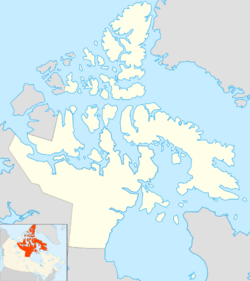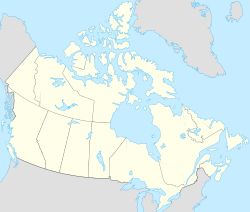Boulder Island facts for kids
| Geography | |
|---|---|
| Location | Chesterfield Inlet |
| Coordinates | 63°39′39″N 091°35′45″W / 63.66083°N 91.59583°W |
| Archipelago | Canadian Arctic Archipelago |
| Administration | |
| Nunavut | Nunavut |
| Region | Kivalliq |
| Demographics | |
| Population | Uninhabited |
Boulder Island is a small, empty island located in the cold, northern part of Canada. It's one of many islands found in a place called Chesterfield Inlet, which is part of Nunavut. This island is part of the huge group of islands known as the Canadian Arctic Archipelago.
Contents
Discovering Boulder Island
Boulder Island is a fascinating piece of land in the vast Canadian Arctic. It's known for being uninhabited, meaning no people live there. This is common for many smaller islands in the far north.
Where is Boulder Island Located?
This island is found in the Kivalliq Region of Nunavut, Canada. Nunavut is Canada's largest and newest territory. It covers a huge area of the Canadian Arctic. Boulder Island sits within the waters of Chesterfield Inlet. This inlet is a long, narrow arm of the sea. It stretches inland from Hudson Bay.
What is the Canadian Arctic Archipelago?
Boulder Island is part of the Canadian Arctic Archipelago. This is a massive group of 36,563 islands. They are located in the Arctic Ocean. These islands are mostly covered in tundra and ice. They are home to unique wildlife. The archipelago is known for its very cold climate. It has long, dark winters and short, cool summers.
Why is it Called Boulder Island?
The name "Boulder Island" likely comes from its landscape. A boulder is a very large rock. Many islands in the Arctic are rocky and rugged. They are shaped by ice and harsh weather. This suggests the island might have many large rocks.
Life on an Uninhabited Island
Since Boulder Island is uninhabited, it's a wild place. The environment is very harsh. Temperatures are often below freezing. The land is rocky and covered in snow for much of the year. Despite this, some animals thrive here. You might find polar bears, seals, or Arctic foxes in the region. These animals are adapted to the cold. They find food and shelter in this challenging landscape.



